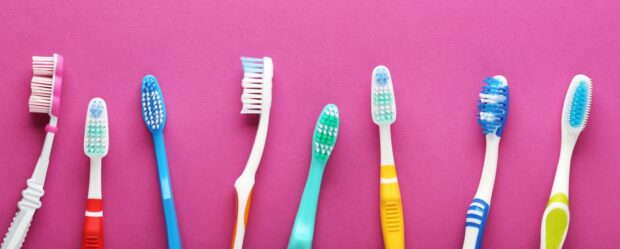A smile can tell so much about a person. How they’re feeling, whether they’re enjoying themselves – and even potential health risks.
But how can you tell which it is?
Experts reveal the top four health signs that can be shown by your oral health.
Are you anaemic?
Pale gums can be caused by anaemia, commonly due to an iron deficiency.
Hormonal changes triggered by the menopause can also decrease blood flow and lead to pale or dry gums.
Some colour variations exist between individuals but any changes that involve excessive bleeding, swollen, receding, ulcerative or painful gums should never be ignored.
See your doctor for a simple blood test if changes appear.
Signs of osteoporosis
Teeth that move more than average during an examination could provide an early clue to osteoporosis.
The bone around your teeth provides the foundation that supports them.
It may be difficult to detect at home, but dentists and hygienists may be first to spot systemic change in bone density due to osteoporosis, say experts at expressdentist.com.
Teeth that move more than average during an exam could provide an early clue to this progressive condition. Report any changes to your doctor, who may arrange a bone density test.
Diabetes
Oral thrush is uncommon in patients with normal immunity unless they’re denture wearers.
So creamy white lesions on the tongue, inner cheeks, or roof of your mouth, gums and tonsils, which look a bit like cottage cheese-like, could be the sign of a problem.
Redness, burning or soreness eating or swallowing is another sign of thrush.

If you have untreated diabetes or the disease isn’t well-controlled, your saliva may contain large amounts of sugar, which encourages the growth of thrush.
Also, patients with weakened immune systems, such as those undergoing cancer treatment or living with HIV, may be more susceptible.
Kidney disease
Kidney disease can cause mouth sores, changes in taste, and dry mouth from xerostomia – a reduction in saliva production.
When the mouth dries out, acidity increases, and the low pH may result in aggressive tooth decay and eventual tooth loss.
Some research also shows patients with gum disease have an increased risk of kidney disease, another two-way relationship between oral and systemic health.
For more information on oral health see your dentist or get symptoms checked at your doctor.

